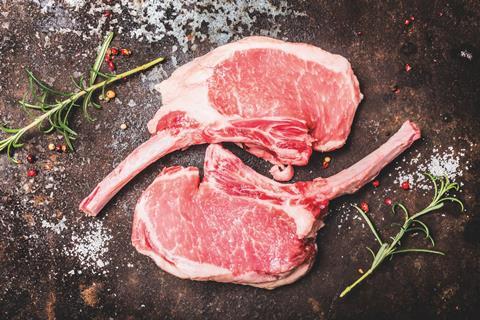National Farmers’ Union (NFU) Scotland has revealed that discounter Aldi has sourced 41% of its products from Scotland, topping the Scottish sourcing charts in the latest NFU Scotland ShelfWatch 2025 Mid-Year Report.

Scottish-sourced products at the retailer increased by 7% since January 2025, and increased by 6% year-on-year. NFU Scotland said that this reflected “continued investment in local supply chains”, while Aldi’s combined Scottish and British sourcing was 88%. This matched Co-op’s combined sourcing, placing both supermarkets ahead of their competitors, however NFU Scotland said other retailers had also shown “strong improvement” in their sourcing.
NFU Scotland president Andrew Connon commented: “Aldi’s progress is encouraging and shows what’s possible when retailers genuinely commit to local sourcing. But it’s equally positive to see other supermarkets closing the gap, particularly Co-op and Asda, who have also made real progress this year. Across the sector, however, less than one in five products on shelves are Scottish-sourced – and that must change.”

It was reported that there were “positive signs” in pork and milk, but other key areas painted a “concerning” picture with regards to product origin, labelling and visibility of own-label goods across eight UK supermarkets.
According to NFU Scotland, imported lamb rose by 8% year-on-year, with major retailers such as Tesco and Morrisons now stocking product from New Zealand and Australia. Asda stocked no Scotch lamb, the report found, with 82% imported lamb on its shelves.
However, British pork sourcing was up 17%, replacing some imports. NFU Scotland said this was a “positive trend”, stating that progress “is possible when retailers engage”.
Connon added: “Consumers want to buy Scottish. Farmers want to supply Scottish. But supermarkets are still too reliant on imports – whether that’s lamb from the Southern Hemisphere or veg flown in from overseas. ShelfWatch shows encouraging steps forward from several supermarkets, but also that there’s still a long way to go.”
Aldi established its Scottish Buying Department in 2009; it works with more than 90 Scottish suppliers and offers more than 450 locally produced items. The retailer said the ShelfWatch data plays an “important role” in shaping its approach.
Graham Nicolson, group buying director at Aldi Scotland, said: “We’re proud of the progress we’ve made and remain committed to supporting Scottish farmers and producers. ShelfWatch provides valuable insight that helps us strengthen local supply chains, expand Scottish ranges, and ensure high-quality produce reaches our customers.”
NFU Scotland said it would return to its findings in its end-of-year report and will engage directly with all major retailers to review progress.















